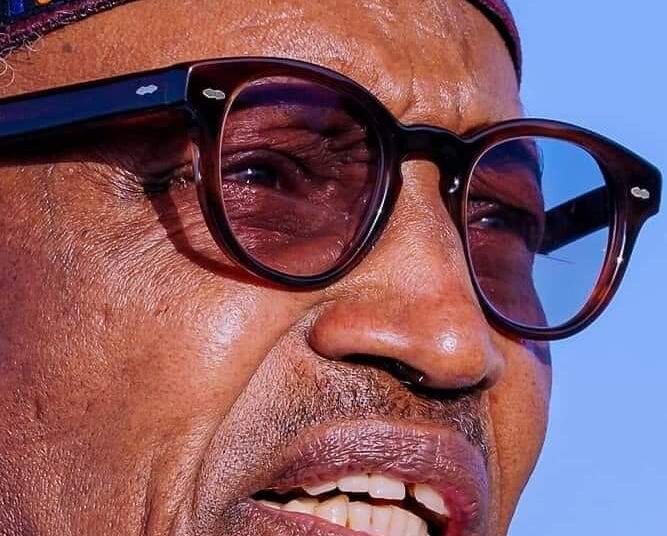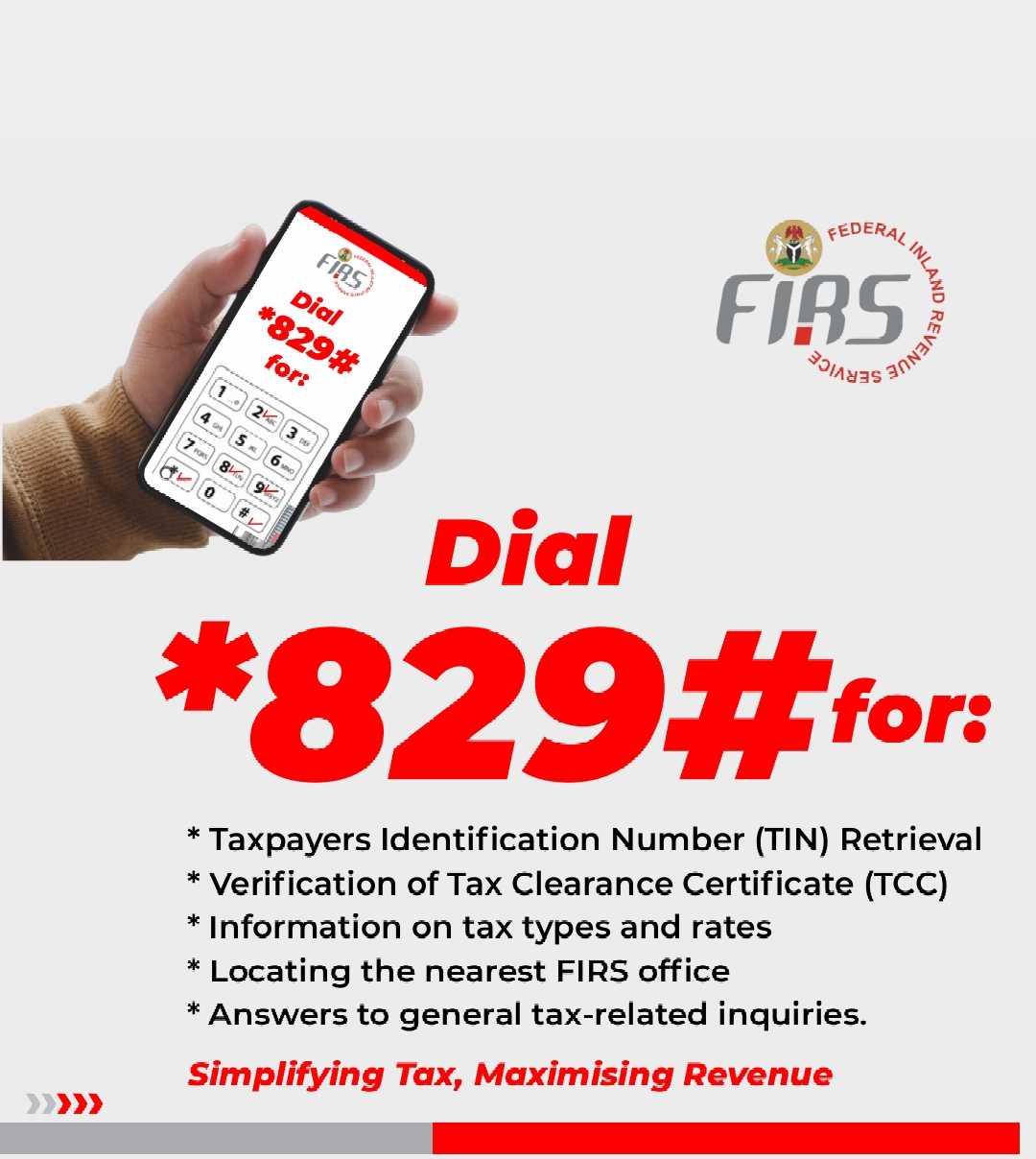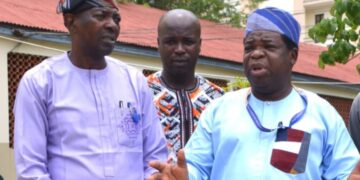APC’s Presidential Aspirants, Party Primaries and the Critical Issue of Eligibility
In less than a week, the All Progressives Congress (APC) will nominate the party’s flagbearer and unveil its much-awaited candidate for the 2023 Presidential Election to the entire nation.
This grand unveiling that already has set tongues a-wagging and political bookmakers and analysts alike a-jawing will be predicated on a screening process in which the eligibility, credibility and capability of the aspirants will be determined.
Only those who scale through this ‘filteration’ process will be presented at the party primary to participate in the actual voting process.
Considering how pivotal the question of eligibility is to the eventual outcome of the 2023 Presidential Elections, it is prudent, nay, expedient to exercise a non-sentimental and humble forethought and a diligent consideration of legal perspectives as pertains to the eligibility of anyone aspiring to be the Nigerian President. To avoid, all the twists, turns, quagmires and foreseen dilemmas that may lead to what might be referred to as a “political ambushment” that would strip the APC of the coveted seat and deliver it into the hands of the opposition.
An African proverb puts it thus: a long-foretold battle cannot catch even the lame or cripple unaware.
Lest it be said in some quarters that this cautionary piece is tantamount to crying wolf when there is none, I take the liberty of citing a similar situation observable in the judgment of the Supreme Court of Nigeria in the case of People’s Democratic Party (PDP) & 2 Ors. v. Biobarakuma Degi-Eremienyo & 3 or (2020) where the APC lost Bayelsa State to the PDP due to the ineligibility of the party’s candidate, Biobarakunu Degi, as the Deputy Governor.
The judicial outcome in this matter reinforces the importance of qualification for election by a candidate and provides circumstantial evidence that where a candidate not duly qualified for an election is fielded by a political party, the electoral victory of such a candidate is liable to be set aside.
Indeed, no one is ignorant of the pivotal role that precedence plays in the hallowed halls of justice.
It is expedient to therefore exercise pragmatism by examining the constituents of eligibility of a candidate within the confines of the Law and as enshrined in the Constitution of the Federal Republic of Nigeria specifically Chapter VI, Part 1, Section 131, & 137 of the 1999 Constitution of the Federal Republic of Nigeria (as amended) which outlines the basic requirements to be met by a candidate to be eligible for an election into the office of the President in Nigeria.
These requirements are patently transparent and unambiguous:
*The aspirant must be a citizen of Nigeria by birth;
*The aspirant must have attained the age of forty years;
*The aspirant must be a member of a political party and is sponsored by that political party;
*If he/she has been educated up to at least School Certificate level or its equivalent.
Section 137 of the same Constitution as amended, goes further to illuminate this matter by providing for several situations which doth render a candidate ineligible to be elected as the President, stating that a candidate will be ineligible:
*If he/she has voluntarily acquired the citizenship of a country other than Nigeria or has declared allegiance to such other country;
*If he/she has been elected to the office of the President at any two previous elections;
*If under the law in any part of Nigeria, he/she has been adjudged to be a lunatic or declared to be of unsound mind;
*If the candidate is under a sentence of death imposed by a competent court or tribunal in Nigeria or is under a sentence of imprisonment or fine for an offence involving dishonesty or fraud or for any other offence imposed on him or her by any court or tribunal and no appeal is pending in respect of such a conviction;
*If within less than ten (10) years before the date of the election to the office of the President, they have been convicted and sentenced for an offence involving dishonesty;
*If he/she has been found guilty of contravention of the code of conduct;
*If he/she is an undischarged bankrupt, having been adjudged or otherwise declared bankrupt under any law in force in Nigeria or any other country;
*If being a person employed in the civil or public service of the federation or state and does not resign, withdraw or retire from the employment at least 30 days before the date of the election;
*If he/she Is a member of any secret society;
*If he/she has been indicted for embezzlement or fraud by a judicial committee of inquiry or an administrative panel of inquiry or a tribunal and which the indictment has been accepted by the Federal or state government;
*If he/she has presented a forged certificate to the Independent National Electoral Commission;
*If he/she has been adjudged guilty of treason or treasonable felony by any court or tribunal in Nigeria;
*If he/she has been found guilty of an offence involving narcotic drugs or any other psychotropic substance by any court or tribunal in Nigeria or any other country.
Also worthy of note is subsection 3 of Section 137 which renders ineligible a person who was sworn in to complete the term for which another person was elected as President by statingt hat such a person shall not be elected to such office for more than a single term.
The Electoral Act is also another supplementary yet critical piece of legislation that wields tremendous power to influence and upturn political and electoral outcomes and reverse the political fortunes of ANY party.
Premium and particular attention should be paid to a salient provision of the enactment which is relevant to the qualification or disqualification of a candidate and may be found in Section 84 ( 12). Clause 84 stipulates that anyone holding a political office ministers, commissioners, special advisers, and others must relinquish the position before they can be eligible to participate in the electoral process either as a candidate or as a delegate.
It is therefore self-evident that any political appointee who wishes to vie for the office of the president must relinquish his or her appointment as refusal will therefore amount to disqualification.
There is therefore no refuting the fact that eligibility is indeed an essential factor which must be upheld, and critically consider if the party must attain a credible process free from nullity and regrettable encumbrances that will be a colossal grief overload that no party could survive in the given circumstance.
The Party must not feign ignorance of “the devices of its (political) adversary and must remain cognizant of the fact that their legal advisers are keenly observing the APC’s nomination processes, as though in a laboratory and with the most powerful of legal ‘microscopes’. They lay in wait, with bated breath, hoping that the APC will slip and make that costly mistake of nominating a candidate who will fail the litmus test of eligibility. As it is often said, to be forewarned is to be fore-armed.
It is in the above context, the need for utmost pragmatism and the overarching interest of the Party that well-meaning and foresighted individuals took the time to review the claims as presented by the aspirants in their nomination forms and conducted rigorous covert background checks of aspirants.
The result of these exercises is the revelation that of the twenty-five (25) presidential aspirants within the APC, only three (3) aspirants will emerge untainted and pristine if subjected to the litmus test of the eligibility criterion.
For the sake of emphasis and to all intents and purposes, it must be made clear that there are very few aspirants among the motley crowd whose conduct in the public sphere over the twenty-off years of public participation has remained unblemished by the infractions highlighted in the aforementioned pieces of legislation.
At the risk of sounding partisan, wisdom behoves that I acknowledge the clear reality that Professor Yemi Osinbajo, SAN, GCON is perhaps the singular aspirant whose aspiration remains untainted by factors such as having sworn prior allegiance to a nationality other than Nigeria, having previously documented certificate scandals(within or outside Nigeria) or previous swearing to several fraudulent affidavits that are in custody of INEC, or an indictment by a Tribunal of enquiry with a pending case to challenging the ruling of the tribunal to be heard at the Supreme Court on 27th May, 2022.
The issue of eligibility is like the proverbial camel passing through the eye of a needle. Who is worthy? The good news however is only Professor Yemi Osinbajo ticks all these boxes.
There is no doubt that the APC, being the ruling party, has access to necessary home and global security reports and information from embassies around the world that can ascertain the status of its aspirants with respect to their possible multiple allegiances to other sovereign nations.
Considering the political sagacity of stakeholders within the opposition and their equally vast network of covert loyalists within the Nigerian bureaucracies and officialdoms, it will not be too far-fetched to surmise that this information is also within their grasps and if necessary, will be deployed as an eleventh-hour blow to the APC’s aspiration to the delivery of a worthy and victory successor to President Muhammadu Buhari in the 2023 General Elections.
What worthy opponent wouldn’t explore such an option if it were delivered by an unwary co-contestant? It is the immortal Chinese war philosopher who is reported to have uttered the words “never interfere with your enemy when he is making a mistake”.
Another modern version attributed to the French general Napoleon Bonaparte goes: “When your enemy is destroying himself, keep quiet”. Is the PDP just watching and biding its time when it would snatch victory from the jaws of defeat via the courtroom?
It would be indeed tragic if this happens eventually, and it is wisdom to be aware and beware of banana peels on the road to victory.
There is a lot to be said for the role that contrived popularity plays in the democratic process as submitted to by the party primaries option. However, eligibility and not popularity is the litmus test.
Indeed, eligibility precedes popularity in the order of prominence. In devising a way forward towards the general elections in 2023, the party cannot neither afford to scoff at the issue of eligibility neither can it also afford to flippantly wave away the consensus option. He that hath an ear, let him heed what this counsel saith unto the Party
-Dr. *Kayode Ajulo*, FCIArb. UK
Note: Dr. Ajulo is the former, National Secretary, Labour Party, Nigeria, Secretary, APC Edo State Gubernatorial Appeal Committee, International Research Scholar in Corporate Constitutionalism, Fellow, Chartered Institute of Arbitrators, United Kingdom and Executive Director, Egalitarian Mission.














